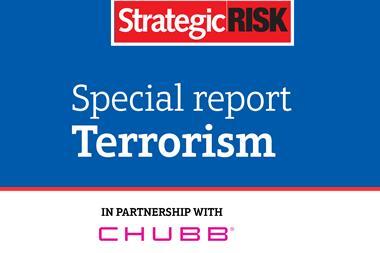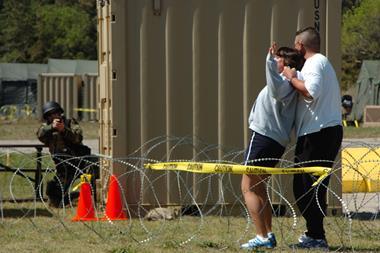The past 12 months have seen a rise in terrorism fatalities despite the number of attacks decreasing

In the past 12 months, global fatalities from terrorism rose by 30% compared to the previous five-year average, according to a new security monitoring service from global risk analytics company Maplecroft.
Globally, the Maplecroft Terrorism Security Dashboard (MTSD) recorded 18,668 fatalities in the 12 months prior to 1 July, up by 29.3% from an annual average of 14,433 for the previous five years.
Over the same period, the MTSD recorded 9,471 attacks at an average of 26 a day, down from a five-year average of 10,468. This shows that terrorist methods have become increasingly deadly in the past year.
The MTSD is a new interactive mapping platform, which logs, analyses and plots all reported incidents of terrorism, piracy, political violence and human rights abuses by security forces down to 100m² worldwide. It also draws on Maplecroft’s seven years of global data to reveal terrorism and security trends across 197 countries.
Twelve countries are rated as ‘extreme risk,’ many of which are blighted by high levels of instability and weak governance.
Of particular concern for investors, the important growth economies of Nigeria (fifth most at risk), the Philippines (8), Colombia (11) and Kenya (12) feature in the ‘extreme risk’ category.
Economic impacts are being felt in Libya, Kenya and Egypt, as each witnessed a significant increase in risk in the MTSD as investor confidence in key sectors such as tourism and oil and gas has been affected, according to Maplecroft principal analyst Jordan Perry.
He said: “When faced with rising security costs and decreasing safety for their personnel, companies can, and do, reconsider their country-level commitments.”
The MTSD also reveals that attacks are on the rise in China (32 and ‘medium risk’), many of which have targeted transportation hubs. Fatalities in 2014 have reached 76, compared to 16 over the first six months of 2013.
Maplecroft said the economic impacts of terrorism are, so far, negligible, but as China pushes for unconventional hydrocarbon development, foreign companies are likely to be involved in shale gas/oil exploration in the restive, hydrocarbon-rich, western Xinjiang province, which is also the frontline of Han-Uyghur tensions. Increased repression in the region means the security situation is likely to worsen.
Iraq, rated as the highest risk country in the MTSD, recorded more than three times as many acts of terrorism as Pakistan (which had the second highest number of incidents) - with 3,158 acts of terrorism, resulting in 5,929 fatalities; an increase of 2,188 deaths on the previous year.
The deteriorating security situation in Iraq underscores its government’s inability to combat the militant group Islamic State (formerly known as ISIS) which now controls vital oil and gas infrastructure, while threatening other key assets in northern Iraq.
An intensifying campaign of violence by Islamic militant group Boko Haram has seen Nigeria record the highest number of fatalities per attack and by some distance, reflecting the intensity of the violence there.
The country has been host to 146 reported attacks in the period from 1 July 2013 to 30 June 2014, resulting in 3,477 killed, at an average of 24 people killed per attack, compared to two deaths per attack in Iraq.
The increased capacity of Boko Haram, as illustrated by attacks on the key centres of Abuja and Lagos in June 2014, is likely to lead to a further loss of investor confidence in Nigeria’s ability to respond to security risks in the country.
Downloads
MTSD map
PDF




















No comments yet